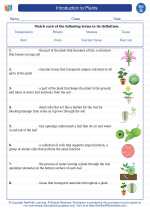Introduction to Plants -> chromosomes
Chromosomes
Chromosomes are thread-like structures located in the nucleus of animal and plant cells. They are made of DNA and protein, and they are the carriers of genetic information. Each chromosome contains many genes, which are the instructions for building and maintaining an organism.
Structure of Chromosomes
Chromosomes are made up of two chromatids, which are joined together at a point called the centromere. The chromatids are identical copies of each other, formed during the process of DNA replication. Each chromatid contains a single molecule of DNA, which is tightly coiled and packaged with proteins called histones.
Types of Chromosomes
In humans, there are 23 pairs of chromosomes, for a total of 46 chromosomes. The first 22 pairs are called autosomes, while the 23rd pair is the sex chromosomes, which determine an individual's sex. Females have two X chromosomes (XX), while males have one X and one Y chromosome (XY).
Functions of Chromosomes
Chromosomes play a crucial role in cell division, as they ensure that each new cell receives the correct amount of genetic information. During cell division, the chromosomes condense and become visible under a microscope. They line up in the center of the cell and then separate, with one chromatid going to each new cell.
Study Guide
- What are chromosomes made of?
- Describe the structure of a chromosome.
- How many pairs of chromosomes are there in humans?
- What is the function of chromosomes in cell division?
- Explain the difference between autosomes and sex chromosomes.
[Chromosomes] Related Worksheets and Study Guides:
.◂Science Worksheets and Study Guides Seventh Grade. Introduction to Plants

 Worksheet/Answer key
Worksheet/Answer key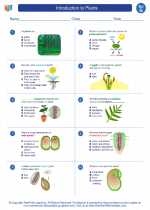
 Worksheet/Answer key
Worksheet/Answer key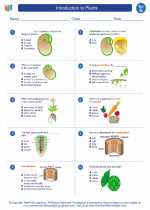
 Worksheet/Answer key
Worksheet/Answer key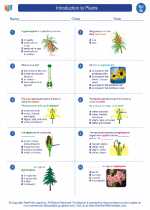
 Worksheet/Answer key
Worksheet/Answer key
 Vocabulary/Answer key
Vocabulary/Answer key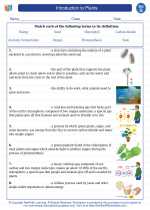
 Vocabulary/Answer key
Vocabulary/Answer key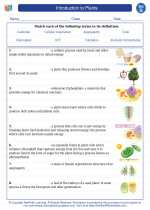
 Vocabulary/Answer key
Vocabulary/Answer key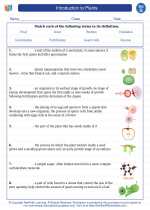
 Vocabulary/Answer key
Vocabulary/Answer key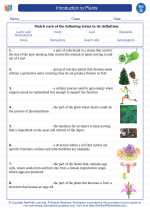
 Vocabulary/Answer key
Vocabulary/Answer key